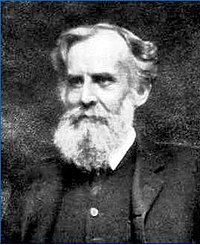
Frequentist probability or frequentism is an interpretation of probability; it defines an event's probability as the limit of its relative frequency in infinitely many trials (the long-run probability).[2] Probabilities can be found (in principle) by a repeatable objective process (and are thus ideally devoid of opinion). The continued use of frequentist methods in scientific inference, however, has been called into question.[3][4][5]
The development of the frequentist account was motivated by the problems and paradoxes of the previously dominant viewpoint, the classical interpretation. In the classical interpretation, probability was defined in terms of the principle of indifference, based on the natural symmetry of a problem, so, for example, the probabilities of dice games arise from the natural symmetric 6-sidedness of the cube. This classical interpretation stumbled at any statistical problem that has no natural symmetry for reasoning.
- ^ Cite error: The named reference
Venn-1888was invoked but never defined (see the help page). - ^ Kaplan, D. (2014). Bayesian Statistics for the Social Sciences. Methodology in the Social Sciences. Guilford Publications. p. 4. ISBN 978-1-4625-1667-4. Retrieved 23 April 2022.
- ^ Goodman, Steven N. (1999). "Toward evidence-based medical statistics. 1: The p value fallacy". Annals of Internal Medicine. 130 (12): 995–1004. doi:10.7326/0003-4819-130-12-199906150-00008. PMID 10383371. S2CID 7534212.
- ^ Morey, Richard D.; Hoekstra, Rink; Rouder, Jeffrey N.; Lee, Michael D.; Wagenmakers, Eric-Jan (2016). "The fallacy of placing confidence in confidence intervals". Psychonomic Bulletin & Review. 23 (1): 103–123. doi:10.3758/s13423-015-0947-8. PMC 4742505. PMID 26450628.
- ^ Matthews, Robert (2021). "The p-value statement, five years on". Significance. 18 (2): 16–19. doi:10.1111/1740-9713.01505. S2CID 233534109.